The rise of Artificial Intelligence (AI) has dominated every industry conversation, and the world of Search Engine Optimisation (SEO) is no exception. For small business owners, the question is urgent and critical: Is AI a threat or an opportunity? Specifically, how is AI affecting Google rankings? You’re rightly concerned about whether giant corporations with massive AI budgets will simply drown out your smaller, local presence.
The truth is that AI isn’t just changing how people search; it’s fundamentally changing how Google ranks information and how you must create content to be found. This authoritative, yet approachable, guide will demystify the impact of AI on your Google ranking. We will break down Google’s use of AI, expose the myth of “AI-proof” content, and provide you with a clear, actionable strategy to leverage AI tools while adhering to the core principles that continue to drive real organic traffic. AI is shifting the goalposts, but the game is still winnable for those who are smart, focused, and human-centric.
Google’s AI: Understanding the Core Algorithm Shift
To grasp how AI affecting Google rankings impacts your small business, you must first understand the primary AI systems Google uses to decide who ranks and who doesn’t.
1. The Rise of RankBrain and BERT
Google has been using AI for years.1 Systems like RankBrain (which helps interpret ambiguous searches) and BERT (which understands the nuances and context of language) laid the groundwork.2 These systems made simple keyword stuffing obsolete long ago. They focus on understanding the intent behind the user’s query.
- The Small Business Takeaway: Content that simply repeats your target keyword without truly answering a question will fail. AI demands topical authority—proving you are an expert on a subject, not just a keyword phrase.3
2. The Dominance of the Helpful Content System (HCS)
Google’s biggest recent algorithmic shift is driven by AI designed to prioritize Helpful Content. The HCS is a broad signal that identifies content created primarily for search engines (unhelpful) and demotes it, while promoting content created primarily to help people (helpful).4
The HCS AI is Looking for:
- Experience, Expertise, Authority, and Trust (EEAT): Does the content creator genuinely have first-hand experience and expertise in the topic? For small businesses, this is your biggest advantage.
- Originality and Depth: Is the content regurgitating common knowledge, or does it offer unique perspectives, insights, or case studies only you, as a specialist, possess?
- User Experience: Is the content clearly presented, easy to read, and does it load quickly? (AI heavily penalizes slow, cluttered sites).
Authoritative Insight: AI is Google’s tool for scaling human values. It aims to filter out mass-produced filler content, whether it’s written by a human or a robot. If your content is genuinely useful to your ideal customer, the HCS will reward it.
The AI Content Generation Challenge: Threat or Tool?
With the accessibility of tools like ChatGPT, anyone can generate thousands of words of content in minutes.5 This is the core challenge that is driving significant changes to AI affecting Google rankings.
The Problem with Mass-Produced AI Content
For a time, some businesses tried to flood the market with cheap, AI-generated blog posts. Google’s algorithm updates (like the Core Updates of 2024) have made this strategy financially risky and largely ineffective.6
Why Google Penalizes Generic AI Content:
- Lack of EEAT: AI can summarize information, but it cannot convey original experience or true authority. It creates “median” content—content that is correct but unremarkable.
- Repetitiveness: As every AI tool trains on similar data sets, the resulting content often sounds formulaic, lacking the unique voice and perspective that builds trust.
- No First-Hand Evidence: AI cannot take unique photos of your latest job, share proprietary data, or offer a unique customer story. These human elements are what the HCS prioritizes.
The Opportunity: Using AI as a Force Multiplier
Small businesses should absolutely use AI, but not to write their final content. Instead, use it to boost your efficiency and focus on what only you can provide.
| AI Task | Small Business Use Case | Resulting Content Focus |
| Outlining | Generate a detailed outline for a blog post based on your target keyword. | Saves time on structure; you fill in the unique, expert details. |
| Research/Drafting | Ask AI to draft the introductory paragraph or a section on common facts. | Speeds up the mechanical writing; you focus on personal case studies. |
| Repurposing | Take a long blog post and ask AI to generate 10 social media posts, 5 email subject lines, and a short video script. | Maximizes the reach of your high-quality, human-led content. |
The Strategy: Use AI to handle the 20% of the work that is mechanical, and spend the remaining 80% of your time injecting the unique human expertise that Google’s AI is actively looking for.
Your Small Business Advantage: EEAT and Local Expertise
The greatest advantage small businesses have against generic AI content and large corporations is your direct connection to the customer and your specialized, local knowledge. This is how you win when AI affecting Google rankings is a factor.
1. Prove Your Expertise with First-Hand Evidence
To satisfy the EEAT factor, you need to showcase tangible proof of your expertise directly in your content.
- Unique Visuals: Instead of using stock images, use high-quality, original photos of your team, your completed projects, or your unique process.
- Case Studies: Turn every successful customer interaction into a short case study (e.g., “How we solved [Specific Problem] for [Local Client] in [Local Area]”). This is content AI cannot replicate.
- Original Data: If you have any proprietary data, customer surveys, or internal statistics, feature them. Original research is a massive trust signal.
2. Double Down on Local SEO Signals
AI has made local signals more powerful, not less. Google’s goal is to serve the most relevant, closest, and most reliable business.
- Google Business Profile (GBP) is Paramount: Ensure your GBP is 100% complete, regularly updated with photos and “Posts,” and that you are aggressively soliciting and responding to reviews. This is the clearest signal of a reliable local business.
- Localised Content: Every piece of content should mention your service areas naturally. Instead of writing “Best Plumbers,” write “Best Plumbers in Manchester: Our 2024 Guide to Reliable Service.”
- Niche Focus: Don’t try to rank for broad national terms. Use your expertise to target highly specific, high-intent, long-tail keywords (e.g., “specialist Victorian chimney repair in Bristol”).
For assistance with optimizing your Google Business Profile and ensuring your website has the necessary technical SEO foundation to support your local ranking efforts, you can explore resources and support on our website at https://galaxiesoftware.co.uk. A strong technical base is non-negotiable in the age of AI.
Adapting to the Search Generative Experience (SGE)
Google is rolling out features like the Search Generative Experience (SGE), where AI generates an answer at the top of the search results page rather than providing links.7 This is a significant factor in how AI affecting Google rankings impacts your traffic.
The Threat: Zero-Click Answers
If the AI-generated answer box provides the full information, the user may never click on your website, resulting in a zero-click search. This is the biggest immediate traffic threat to small businesses whose content only covers basic, factual information.
The Solution: Targeting Complex and Commercial Queries
You must adapt your content strategy to focus on queries that AI cannot fully satisfy.
| Query Type | AI Evasion Strategy | Content Example |
| Commercial/Transactional | Focus on reviews, comparisons, and purchasing intent. | “Product X vs Product Y: Which is better for a small UK workshop?” |
| Experiential/Opinion | Answer questions requiring personal experience or subjective opinion. | “What’s the best time of year to launch a new fitness class in London?” |
| Complex/Troubleshooting | Provide deep, nuanced, step-by-step guides that go beyond the quick summary. | “A Step-by-Step Guide to Troubleshooting a Specific Error Code on a Commercial Boiler.” |
The Goal: Make your content the definitive, deep-dive source that forces the user to click past the simple AI summary. Your goal is to be the authoritative source that the AI cites in its summary box.
Conclusion: The Path Forward for Small Business SEO
The shift of AI affecting Google rankings is permanent, but it is not a death sentence for the small business. In fact, it’s a powerful filter that rewards your inherent advantages: genuine expertise, unique local insight, and human authenticity.
Stop worrying about generic AI content tools and start using them as simple accelerators for the mechanical parts of content creation. Dedicate your energy to creating truly helpful content—content imbued with EEAT, demonstrated through original photos, genuine case studies, and deep local knowledge.
By mastering your Google Business Profile, focusing your content on complex and commercial queries, and consistently proving you are the most trustworthy expert in your niche, you will not just survive the AI revolution; you will use it to strengthen your rank and connect with the customers who truly need your specialized service.
What is one unique, first-hand experience or case study you could share this week to inject human EEAT into your next piece of content?

